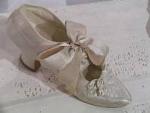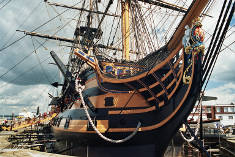Courses are geared to the knowledge level and analytical ability of students emerging from Canadian undergraduate programs in history (or equivalent) with a strong academic record.
Seminars are two hours in length and held weekly for 12 weeks each Fall and Winter semester. Most are scheduled for 4pm to allow part-time students to participate.
This course introduces students to a variety of methods and theories currently used to advance historical explanation. Particular attention will be paid to the role of narrative, the place of the social sciences, and the complexities of culture, race, gender, ethnicity, and class in historical writing.
Readings will also address the problem of synthesis, postmodernism and the relationship between history and public policy. This course stresses the development of skills in critical reading and analytical writing.
 This course introduces students to the range of methods and approaches to historical research, and to the problems associated with interpreting various kinds of sources.
This course introduces students to the range of methods and approaches to historical research, and to the problems associated with interpreting various kinds of sources.
Students will identify and establish a research problematic, in which they define the questions to be posed, and begin to move from broad to narrow approaches to their topic.
They will discover and evaluate accessible sources of evidence, and at the same time develop an appropriate methodological and interpretive framework for a specific research project.
This course will provide a thematic approach to the foundations of Western attitudes towards sexuality, especially as they developed in premodern Europe.
The complex interweaving of ancient ideas, medicine, Christian law and theology, and popular practices and beliefs will be explored.
This course is problem oriented and will explore some of the theoretical issues pertaining to the historical study of human sexuality.
 This course examines the historiography and theory of these twointerrelated fields since 1970.
This course examines the historiography and theory of these twointerrelated fields since 1970.
It explores the themes and approaches in early studies of women's organizations, labour, and sexuality; the later growth of attention to differences of culture and power among women; and the more recent emergence of poststructuralism and the study of the interrelation of gender, class, and race.
Readings will range across time periods and national boundaries but with an emphasis on the U.S. literature.
This course will provide an introduction to the historical problems encountered and interpretive possibilities revealed when books (both artefacts and texts) become the focus of inquiry.
Ranging broadly through a variety of disciplinary approaches to manuscript and print cultures on both sides of the Atlantic, we will consider such questions as the complex uses of literacy, and the extent to which technological transformations such as the printing press or the computer have determined literary and cultural change.
Studies of the book trades (printing, bookselling, journalism, publishing of all kinds) will be used to illuminate changes in religious, scientific, scholarly, literary and other aspects of the cultures (from medieval to postmodern) in which they flourish.
 The course discusses approaches, methods, and debates in the writing of social history in English Canada since 1970.
The course discusses approaches, methods, and debates in the writing of social history in English Canada since 1970.
Topics discussed include historiographical debates over the writing of a "national" history, the writing of labour and working class history, women's history, ethnic and immigration history, the history of sexuality, regional history, and family history. How the categories of class, gender, race, ethnicity, and sexuality have been incorporated into the writing of Canadian social history is a focus of consideration.
This course evaluates important works of history and theory written from a postcolonial perspective. It focuses on novel approaches to studying people whose modern experience began as subordinate subjects of the West's colonizing projects. The course will also consider the influence of postcolonial scholarship on contemporary historiography in general.
This course addresses themes in the history of modernity, the lived experience of the capitalist, scientific and technological revolutions over the last three hundred years. Focusing primarily on the years from 1800-1950s, this course will begin with literature on the contemporary ideas of “being modern” in North America and Europe and the critiques of modernity by social theorists such as Marx, Gramsci and Weber.
It will then turn to the historical literature on modernity, ideas of the modern and their impact on areas such as politics, the state, the workplace, economic development, education, colonial relationships, and the environment.
This course addresses the ways in which the concept of class has influenced our understanding of the past, particularly in relation to the history of working people.
It reviews the "new" labour history that emerged in British and North American history beginning in the 1960s, and documents the ways in which the history of identities (race, ethnicity, and gender) and postmodernism have impacted the study of class.
The course examines the rise of capitcal and labour from their roots on the farm and plantation and in the craftshop through to modern industrial society and the contemporary effects of deindustrialization and globalization.
The course furthermore scrutinizes not only the history of that experience, but also the theoretical, and historiographical content of class studies.
Selected Topics in History.
A sophisticated scholarly essay, normally amounting to some 40-60 pages, incorporating research on primary sources (in most cases), and written under the supervision of two members of the graduate History faculty, a supervisor and a second reader. There will be a public oral examination. Students are advised that they may be required to have proficiency in a language other than English to conduct their research.
Graduate Faculty
The following faculty members are able to supervise Major Papers:
- Christina Burr
- Shauna Huffaker
- Guy Lazure
- Mohamed Mohamed
- Robert Nelson
- Steven Palmer
- Miriam Wright
Learn more about their research interests and contact information on our Faculty & Staff web page.
